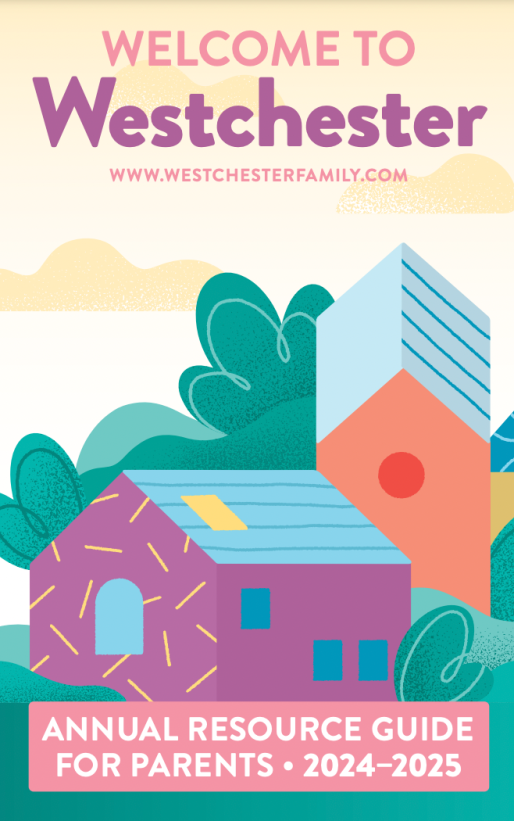As summer winds down, children and parents are turning their attention to the coming school year. Most kids take the return to school in stride. For some children, however, the coming school year can be a source of true, and at times debilitating, anxiety.
We asked Vicki Iannotti, M.D., associate chief of General Pediatrics at Maria Fareri Children’s Hospital at Westchester Medical Center, for her thoughts on when to know if a child’s back to school anxiety is above the norm, what may be the cause and what parents can do to help their children adjust to this yearly ritual.
Q: At what age are children more prone to suffering back to school anxiety?
A; Back-to-school anxiety can happen at any age, but it’s more common at some ages. For example, teens going off to college are often anxious and tweens and teens starting middle school or high school get anxious, too. It’s good for children to know that it is normal to fear the unknown.
Q: What causes younger, elementary-aged children to suffer this anxiety?
A: There are different reasons for anxiety with young children. Separation anxiety is most common until around age 5 and it normally lasts for just a few days. In some instances separation anxiety can last up to two weeks, but it shouldn’t last more than that.
Other children are shy. Shyness is something that affects about one-third of all children, so it’s fairly common. Shyness, however, is something that takes longer for children to overcome.
In some cases, the process can take a couple of years. For example, as children get a little older, sometime around the second or third grade, they have a network of friends and when they get their classroom assignment, they’re eager to learn which friends share the same class. Once this mystery is resolved, the anxiety dissipates.
Then there’s social anxiety. This is more common in children ages 11 through the teens. At this age children are more aware of their anxiety because they fear rejection or embarrassment.
Social anxiety typically improves with positive reinforcement. The challenge for tweens and teens, however, is facing their anxieties and learning through experience that the situation causing the anxiety is not as bad as they perceive it to be.
Q: If some amount of back to school anxiety is normal, what are some warning signs that can alert a parent to a real problem?
A: A real problem exists if school anxiety lasts beyond the first month of the school year. There’s also a problem if the child – in preparation for school or once the school starts – vomits every morning, can’t sleep, can’t get through homework, or can’t concentrate because they’re so upset and anxious.
Thankfully only a small percentage of children reach this anxiety level. When they do, parents often reach out to their pediatrician for evaluation. From there, pediatricians seek to learn more about the big picture. For example, we ask questions such as “Is there bullying at school?” or “What’s happening that is causing this child to be so unhappy?” Then we deal with the particulars.
One thing to note is that school anxiety can carry over from one school year to the next. So, a negative experience from a previous year, whether it is happening or not in the current year, could affect the child.
Q: So what can parents do to help their child overcome this anxiety?
A: First and foremost, parents should speak directly to their children about anxiety. Don’t skirt the issue. Talk to your children and ask them how they are really feeling about the start of school. Also, parents should listen carefully and when necessary, read between the lines.
Parents also can help their anxious children by making positive suggestions and associations. For example, parents should start conversations with their children by asking who they look forward to seeing again, reminding them of the things they enjoy about school.
Q: Are there concrete actions a parent can take that will help?
A: Parents can help young children plan strategies that manage their fears. A good first step: make school a familiar place by taking a trip or two to the child’s school prior to the first day of class. And don’t just focus on the classrooms; go on the playground, walk around the grounds and so on. This simple activity can remove unfamiliarity and reduce some of the nervousness of that first day.
In addition, some parents place notes containing positive comments or reinforcement in lunch boxes. This is a nice gesture for the child who’s missing home and feeling insecure.
For children having academic difficulties, parents should be proactive. If they can, it’s a good idea for parents to contact their child’s teacher via email either before the first day of school, or by the first week of school. Parents should speak with the teacher and highlight the child’s needs. Parents should also inform the teacher about their desire to communicate regularly and stay ahead of academic problems.
Q: What is the overall message for kids who are feeling anxious about the start of school?
A: I think the message for children is simple: it’s natural to be a little nervous for the start of school. And in many ways, that’s a positive. It means they care and desire to perform well.
David Neilsen is a regular contributor to Westchester Family.
Vicki Iannotti, M.D. is associate chief of General Pediatrics at Maria Fareri Children’s Hospital at Westchester Medical Center, the children’s hospital for Westchester County the Hudson Valley and Fairfield County. For more information about the hospital or to schedule an appointment with a Children’s Hospital doctor, please visit www.westchestermedicalcenter.com/mfch or call 877-WMC-DOCS (877-962-3627).










